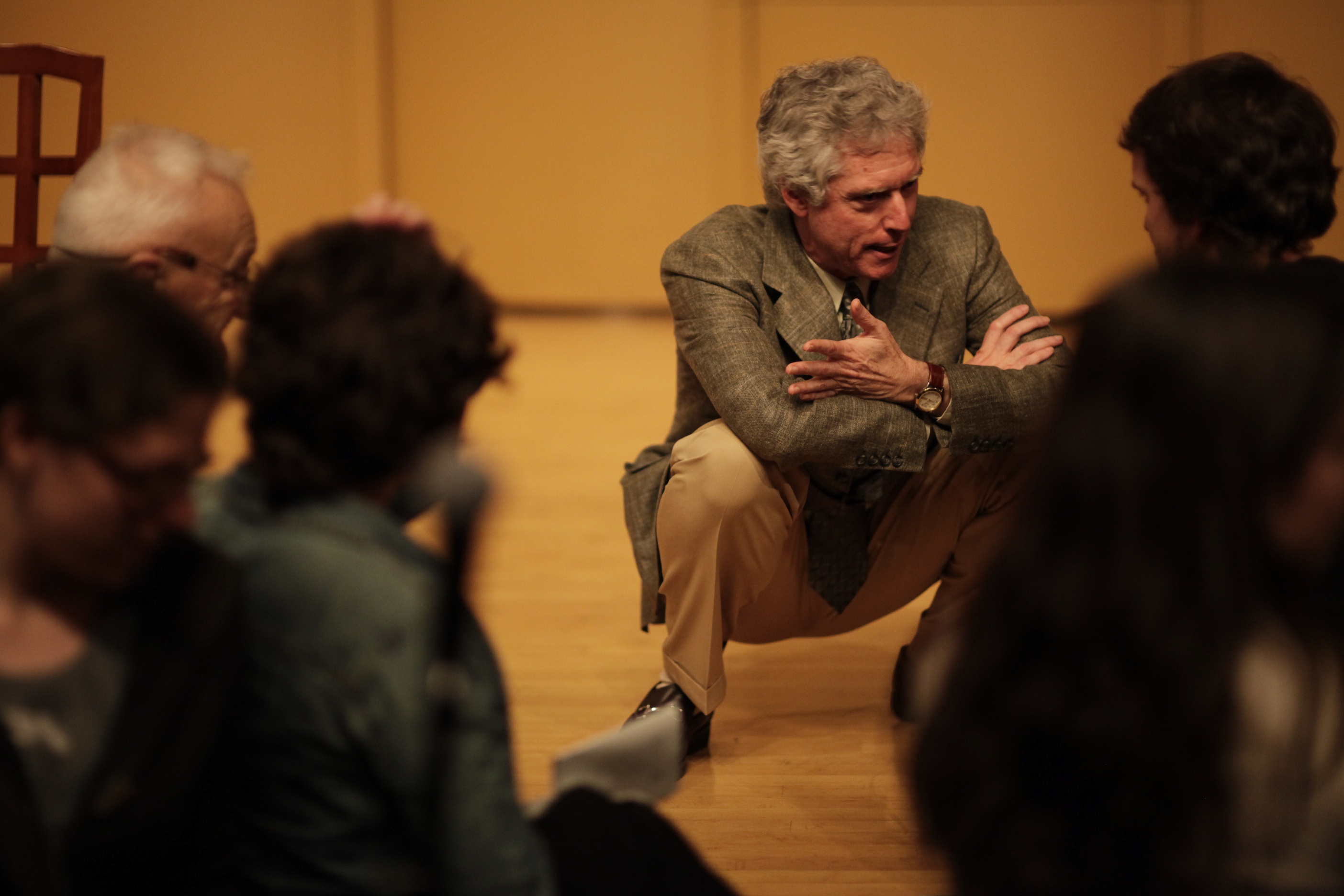
Seniors might welcome the prospect of graduation, but departing Puget Sound also means leaving behind the classroom to pursue fresh goals. One becomes an adult, a worker, a citizen and drops the title of “student.” Yet, if a person wants to keep learning, to contribute to a community of independent learners and to nurse her intellect, from whom can she find guidance?
Beyond the academy, the public intellectual serves as a leader of public intellectual life. This is a person who has trained in academic institutions and conducts research following the methodology of his field, reaching across his area of expertise to strike up a dialogue with other experts.
Puget Sound’s spring Swope lecturer, B. Allan Wallace, is a recent example. Founder of the Santa Barbara Institute of Consciousness Studies and scholar of Tibetan Buddhism, Wallace argued that the traditions of science and religion mutually inform each other. He also warned that in a global age, the exclusionary tendencies of “scientistic” and religious dogmatism will result in unresolvable cultural-political tensions.
In his public role, the intellectual begins to speak outside of the university environment. To appeal to an audience unfamiliar with the theories and conventions of academic lectures, his scope is necessarily inter-disciplinary and he cooperates with civic and governmental organizations to establish a network in the community.
Puget Sound’s faculty are public as far as students are concerned, since educational interaction is part of daily life. Some faculty have integrated themselves into the community. For example, Nancy Brewster and Dexter Gordon, respective professors of history and African-American Studies, have worked to host the annual Race and Pedagogy Initiative on campus.
Mott Greene and Paul Loeb, respective professors of Science, Technology and Society (STS) and philosophy, collaborate with Seattle’s ACT Theater to address issues relevant to public intellectual life.
During an interview, Loeb spoke to the condition of the public intellectual in American society today. He suggested that in Europe, the fact of intellectuals acting in a public capacity is and has been historically commonplace, whereas one sees a contrary phenomenon in the United States.
“[The pairing of] ‘public’ and ‘intellectual’ is a contradiction in America,” Loeb said.
In recent decades, a few nationally recognizable individuals have made names for themselves as public intellectuals, interweaving their knowledge with diverse patterns of thought, cultural trends and information sharing media.
People like Susan Sontag, Stephen Hawking, Spike Lee and Cornel West have uncovered their minds for a national audience. West, a professor of religion and philosophy at Princeton, is ubiquitous in radio, documentaries, lecture halls and bookshelves and has notably embraced the role of public intellectual.
Yet, too much exposure can turn a public intellectual into a public personality. The personality poses questions for rhetorical, not discursive, purposes. Aficionados nod in agreement but do not speak up. Disagreers turn away
The country does not mind people like Steve Jobs or Bill Gates, but their loyalties are to innovation, production and design in the realm of consumer technologies. In politics, a comparable, if embattled, figure is President Obama.
“Obama is a quasi-intellectual president,” Loeb said.
The President demonstrates the resolve to realize the hopes of his own influences, like Abraham Lincoln, but is hampered by cultural mores that label his approach as pedantic, scornful and elitist.
“America is hostile to ideas, to intellectuals in general,” Loeb said.
Nonetheless, the question, “What is a public intellectual?” is misleading. Rather, one must ask how a citizen like a recent Puget Sound graduate can engage and exercise the public intellect, to keep the dynamo of discussion, and therefore collective thought, in ceaseless motion.
At a liberal arts institution, a student can feed intellectual hunger in several ways. Classes, office hours, clubs, professor seminars, visiting speaker and endowed lectures, literary and journalistic media: each allow student to satisfy her curiosity and grow to be an analytical, perceptive, and informed citizen.
Yet after graduation, an obstacle arises in sustaining the passion, technical skills and knowledge of an area of study to go on with further enquiry. To re-evaluate one’s way of thinking from a new, non-academic perspective, the life-long student seeks out the public intellectual life and the people at its fore. Lecture series, arts centers, artist co-ops, experimental colleges and independent publications offer viable outlets.
In the interview, Professor Loeb invoked Plato’s belief about a philosopher’s duty to his society, detailed in The Republic. After cultivating his or her knowledge in the solitude of an academy, a place for contemplation, the philosopher has a duty to go outside and teach. The philosopher leads by teaching.
Speaking optimistically, perhaps the same can be said of the recent graduate. After years of study, she has the drive to keep learning, the duty to put her efforts to the intellectual and artistic vitality of the community, and the chance to open up the American mind again.
